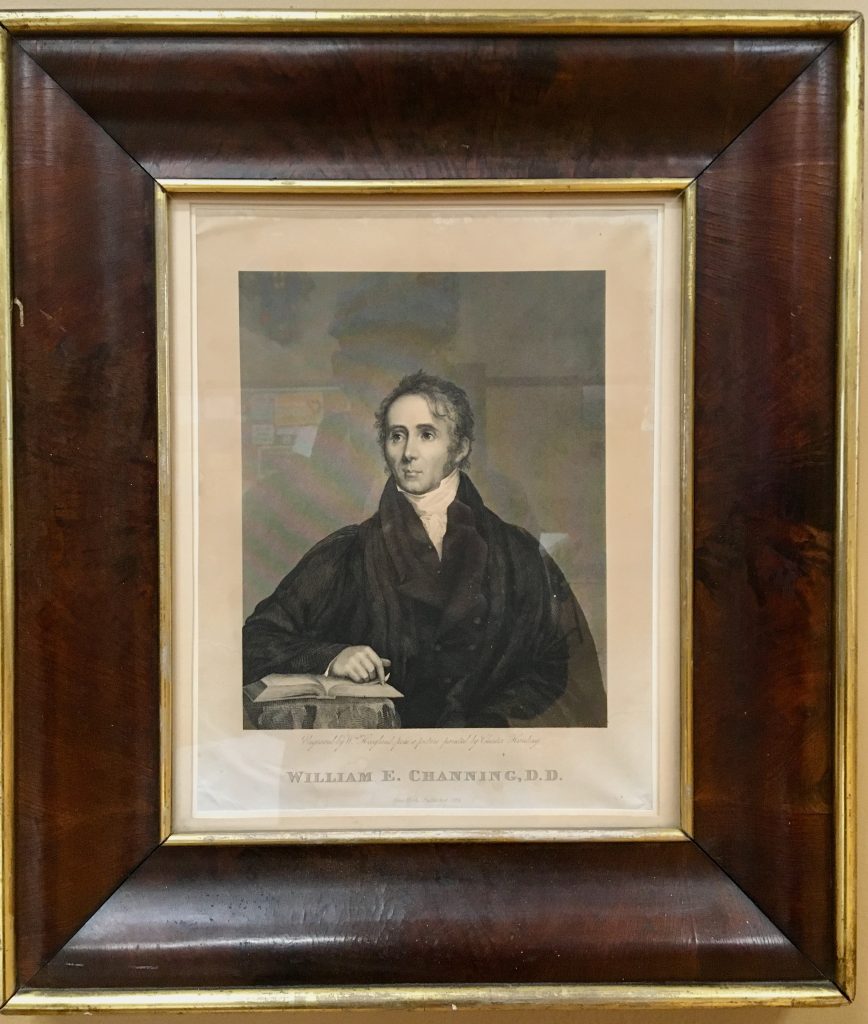Framed Portrait of William Ellery Channing in Channing Hall

Portrait of William Ellery Channing
b.1780 Boston, Mass. – d.1842 Bennington, Vermont
Engraving ca. early 19th century. Photocopy
This space, named Channing Hall when it was built in 1926, honors William Ellery Channing, an early and extremely influential 19th C. Unitarian minister in Boston, Mass. He is remembered as one of the founders of The Harvard Divinity School and for his early resistance to Calvinism’s strict Trinitarian theology.
He followed a lifelong practice of advocating examination of established beliefs, but with a willingness for discussion and debate while working toward compromise. Not a joiner of movements, Channing encouraged finding a middle way through respectful discourse when extreme positions could be taken, a practice we try to encourage here in our congregational life, much of which occurs in this room.
Many New Englanders of Channing’s era benefitted from slavery and other racist practices of the time.
Members of Channing’s family did, also. And he was cared for as a child by a formerly enslaved woman. Her name was Duchess Quamino. She was an influence on him as his developing ideas led toward abolitionism. While employed in the Channing household, she started a catering business and became very successful at it. When she died, Channing extolled on her tombstone her qualities as a respected and well-connected member of the community.
Channing’s views evolved as a Unitarian minister and scholar. He wrote extensively against slavery and became an ardent abolitionist toward the end of his life. Had he lived longer, and continued evolving as he was, he would have been a potent force for abolition and most certainly would have continued to influence debate against slavery prior to the civil war era.
His output is extensive on many topics. The literature about him is equally extensive. It is common to see his name gracing Many UU Church spaces around the country. We are encouraged to remember him and follow his example as someone who was aways willing to ask difficult questions about established beliefs with respect and a willing ear for discussion about new ideas and adjustment of those beliefs.
